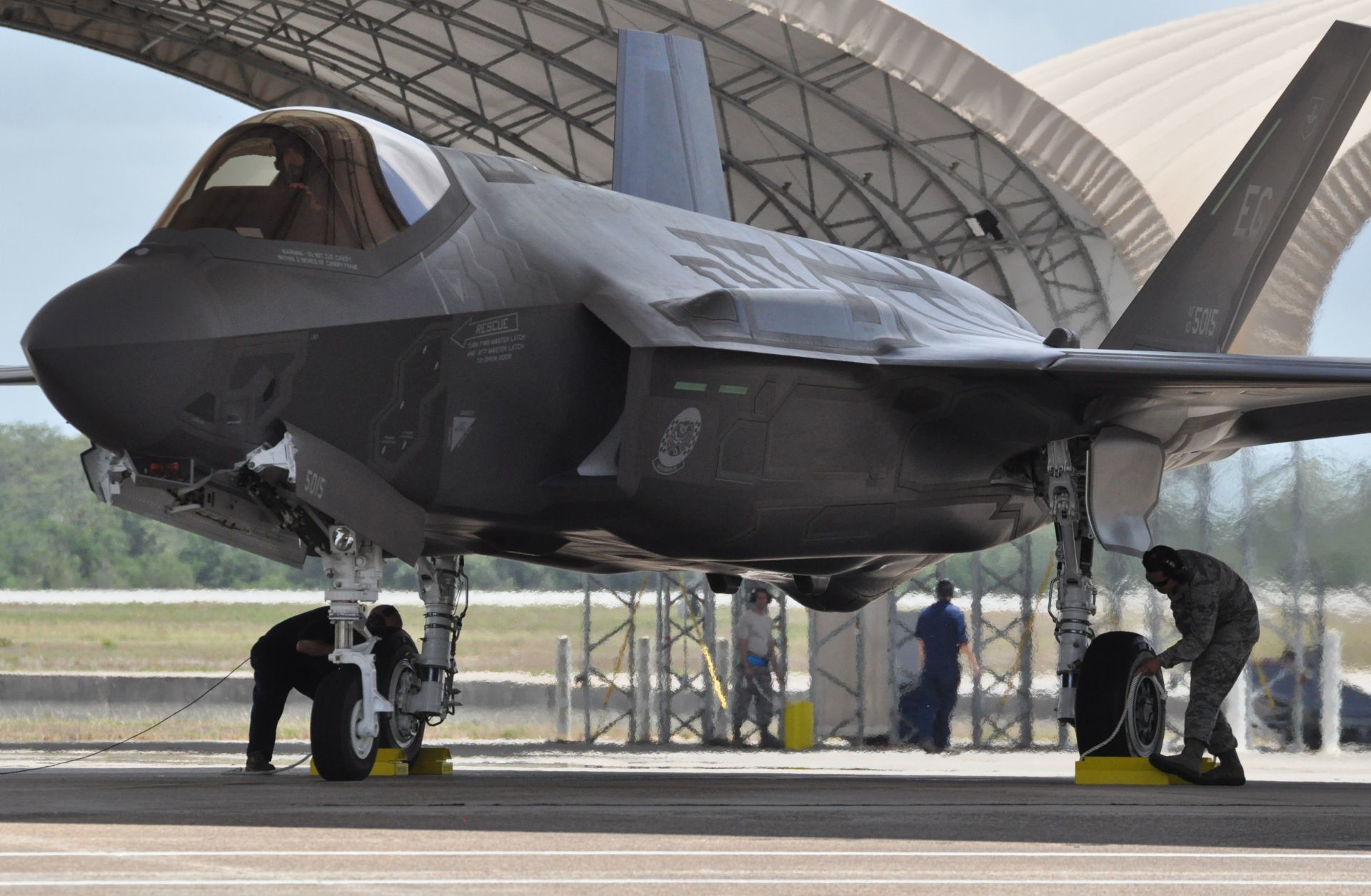The F-35A Lightning II can carry thousands of pounds of bombs, but its ability to gather and share information is just as deadly.
Pilots from the 388th and 419th Fighter Wings brought this fifth-generation technology to Red Flag 17-1 air combat exercise here.
The F-35 is designed to share what it sees with legacy aircraft, as well as other F-35s. A combination of stealth, electronic attack, information sharing, and other features make the platform an invaluable part of a modern air-strike package.
“Our strength with the F-35 has been finding the threats,” said Lt. Col. George Watkins, 34th Fighter Squadron commander. “We use our onboard system to geo-locate and get a picture of the target, day or night, through the weather. We pass that threat information to others while using our stealth capability. We can get a lot closer to the advanced threat than anyone else can get. That allows us to target them out and take out critical assets.”
During one scenario, the Airmen were given a general location by advanced intelligence, surveillance and reconnaissance aircraft. The F-35s were tasked with finding a convoy carrying a “high-value target.” The F-35s advanced targeting capabilities were able to pinpoint the convoy’s location. They then communicated that to British Typhoon fighters who took out the target, said Lt. Col. Dave DeAngelis, F-35 pilot and commander of the 419th Operations Group, Detachment 1.
The F-35 uses the Link 16 secure architecture to communicate with fourth-generation aircraft in the Red Flag fight and combined with the Multifunction Advanced Data Link (MADL), which allows pilots to see the battlespace and share that data with other F-35 pilots.
“The thing that’s great about having Link 16 and MADL onboard and the sensor fusion is the amount of situational awareness the pilot has,” Watkins said. “I’m able to directly communicate with specific formations and I can see the whole war, and where all the other players are, from a God’s-eye view. That makes me a lot more effective because I know who to talk with and at what times, over the secure voice.”
While Link 16 connects fourth- and fifth-generation fighters, the F-35’s MADL system is key for their tactics and mission success.
“MADL is an integral part of our day-to-day ops with the F-35,” Watkins said. “It’s the data link that we use to communicate just between F-35s. It’s a solid architecture and from my experience, it’s been very stable. The pilots rely on it for fighting, and at night we fly what we call sensor formations and we use MADL to keep our situational awareness from each other.”
F-35 pilots report that the onboard fifth-generation technology is amazing and has been proven effective through the Red Flag exercise.
“The information that we get from our sensors provides a phenomenal picture of the battlespace,” said Maj. James Schmidt of the 34th Fighter Squadron. “When a 4-Ship of F-35As are sharing information, it increases the lethality of the entire force.”
“I could be pointed away from the target area and still have an accurate picture of what’s behind me,” he added. “It adds a sense of confidence that when I pitch back into the fight, I don’t need the extra time to build the picture again before bringing the fight to the enemy. We also provide what our aircraft sees to fourth-generation assets, allowing them to see things beyond what they would normally be able to.”
Flying began at Red Flag Jan. 23 and to date, Hill’s Airmen have generated 155 sorties, including their first 10-jet F-35A sortie Jan. 30. They “turned around” and launched eight jets that afternoon. The Airmen will generate 16 to 18 sorties every day through Feb. 10.
Hill AFB will eventually be home to three operational F-35A fighter squadrons with a total of 78 aircraft by the end of 2019. The first operational F-35As arrived at Hill in October 2015 and reached initial operational capability in August 2016. The active duty 388th FW and Air Force Reserve 419th FW will fly and maintain the jet in a Total Force partnership, which capitalizes on the strength of both components.










